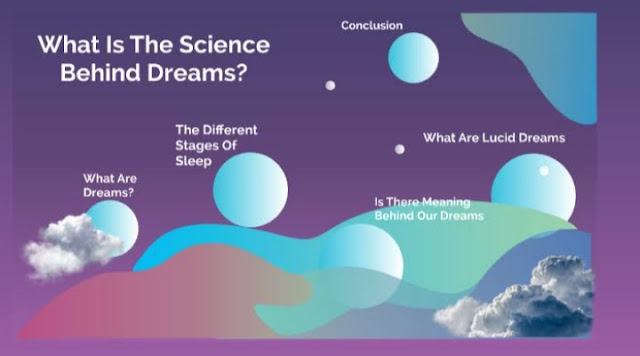 |
| What is dreams? |
What is a science behind dreams? Have you ever surprised if your dreams actually mean something, why we have them, or if they are helpful to us in few way? Before many years, researchers have been asking the similar questions. While dreaming is something we do each and day, we still don’t know a lot about it.
All of you know that- Sleep is really one of the necessary primary requirements than we have, and it’s one that’s often overlooked. Delving into the science behind sleep and dreams learned us a lot about how our brains acts. By learning more, we can make the most out of our literal dreams and use them to support us reach our figurative dreams. Keep reading to learn more about what science does and does not inform about sleep and dreams.
What science behind Dreams?
In REM sleep, it’s shown that we feels our most clear dreams. Research have serach that dreaming is managed by forebrain mechanisms, that influence our speech, abstract thought, and pleasure, and the REM step of sleep is prevented by the brainstem, that supports control our heartbeat and breathing. In a chain of reactions, the brainstem can activate the forebrain and produced dreams to exists.
Researchers have also searched that as we see dream, the amygdala, the part of the brain that related with our feelings, is get highly recommend regulate than it is while we are awake. As we will look later on, this may be important to understanding the meaning of our dreams.
Is Dreaming Good For You?
But question is arrived that there is any healthy applications of dreaming? Several Scientists tells there could be. Research have searched that people who invest maximun period in REM sleep, where dreaming exists, have minimum fear the second day. While researchers are not totally confirm why this is, they trust it has to do with a hormone called norepinephrine. Norepinephrine is related with stress, managing how the amygdala replied to fear. During REM sleep, this hormone is minimum motivate or actice, that means the amygdala is little likely to have a stressful change.
Other suggested application is good facial recognition. A research by Matthew Walker, which is the director of the Sleep and Neuroimaging Laboratory at the University of California, in the Berkeley, searched that when colleagues reached REM sleep during a nap, they were best capable to decide facial expressions than those who didn’t. In specifically, they could good find positive feelings, leading Walker to the result that when we are good refreshed, we are highly intune with positive emotions or moods, as opposed to negative ones.
Do Dreams Mean Anything?
 |
| Science Behind dreams |
Have you ever woken up from a stupid dream and shocked, where did that come from? From many years, researchers have proosed the similar concept. Why, when we go to sleep at night, do we imagine ourselves as best that others? We can go on such amazing adventures when we sleep, but what do they mean?
Researchers have come up with a pairs various experiments. Sigmund Freud, one of the higher influential figures in psychology, tells that - dreams give us insight into our deeper selves. In his 1899 book, The Interpretation of Dreams, he described that dreams are our brains’ trying to solve a argument. To do so, our brains mask the fight creating it appear in our dreams as something special one, sort of like a hidden message. Then, while we trying to uncover this message, we end up learning a maximum about ourselves along the way.
One of the another takes this idea of our dreams being related to feelings and spins it a various way. This model is also known as the AMPHAC/AND Neurocognitive Model Of Disturbed Dreaming, said that dreams are our way of activating feelings or emotions mainly fear. Normal dreams support us remove or face to fear and method other feelings correctly. Nightmares, on the other side, exists when this regulation wrong.
A third report has an totally different perspective on the meaning of dreams. The Activation-Synthesis Model said that dreams are really irregularly. They are our brains’ way of creating feeling of activity that goes on while we sleep. Our brains take signs from parts like the amygdala and the hippocampus and trying to clarify them, resulting in dreams. That doesn’t mean dreams are don't have any meaning. As J. Allan Hobson, which are the one of the Harvard psychiatrists who suggested this theory, said that- Dreaming may be our most creative conscious state, one in thar the chaotic, spontaneous recombination of cognitive elements Created novel configurations of information: new ideas.
Each and every of these reports requires a specific viewpoint into what dreams mean, and there are several more experiments out there. Dreams learns us how creative our brains can be and who knows what else we can learn from them? Take some period and focus on our dreams, and perhaps we will tap into a newly perspective not yet thought of.
So, all above points will be considered when you have a question what is dreams? What is Science Behind dreams?

